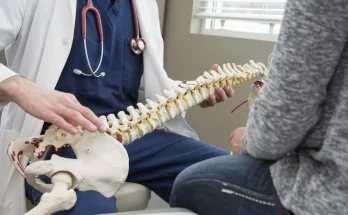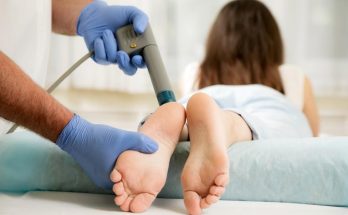Vein surgery is an effective way to treat tangled, unsightly varicose veins. There are a number of minimally invasive treatments that can ease the discomfort and look of these veins. While most of us don’t look forward to having a surgical procedure done, there are some things you can do to prepare for a vein treatment to make recovery go smoothly. Try these ten tips for recovering from your varicose vein treatment:
- Schedule a pre-surgery office visit with your doctor
At this appointment, your doctor will review your medical history and give you a physical exam to determine what your surgical needs will be. You will be given a list of things to complete prior to surgery; make sure you review this while still in office so you can ask clarifying questions and get a good understanding of what your role will be in healing.
- Understand what type of surgical procedure you will undergo
Depending on the severity of your varicose veins, your vein doctor will prescribe one of the following:
Stripping and ligation
This is the most invasive type of surgery, involving removal of large sections of faulty or dead veins.
Ambulatory phlebectomy
Removal of veins is done through a small incision made into the leg. Doctors may use local anesthetic for this procedure.
PIN stripping
This procedure is similar to the phlebectomy, but it uses fewer incisions, and recovery time tends to be faster.
Ask your doctor what type of surgery is best for you, and make sure you understand why. Make sure to ask about recovery time and restrictions as well.
- Go over lifestyle changes
When you meet with your doctor, go over any medications you are taking, including herbal supplements. Some of these substances can delay healing or even interfere with medications the doctor may try to prescribe for you. If you smoke or use tobacco, consider quitting prior to surgery to speed up healing and recovery. The healthier you are going into a surgical procedure, the faster you will recover.
- Schedule a ride home
You are likely to be groggy and unable to drive yourself home after your procedure; line up a trusted ride home to take care of some of those final details for you. It would be an excellent idea to have someone stay with you an additional 24 hours to make sure everything goes as expected. Take care of your “to-do” list before you undergo surgery so you can just rest and relax upon arriving home.
- Watch those legs!
It is extremely important to protect your legs from bumps and other injuries in the hours and days after your procedure. Sit with legs elevated, and make sure you have important items placed nearby so you don’t have to keep getting up and moving around. If you must move, do so carefully, especially around sharp corners and objects that might tear and bruise your legs. Taking a few precautions in the days after surgery will set you up for a successful recovery.
- Have a plan for management
Your vein doctor will likely tell you that your legs will be tired and sore after your procedure. Follow all instructions for post-operative care, period. This includes taking pain medication and icing your legs as needed. Use extra pillows when elevating your legs to take additional pressure off of them, and take periods of rest to allow yourself to heal effectively.
- Exercise, stretch, and get moving
It is essential that you keep blood flowing through your legs as you recover. Flex and point your toes 3-4 times every ten minutes while sitting down, and get up and moving during the day. Regular, gentle exercise will help reduce your risk for developing blood clots that could potentially delay your healing process and bring about more complications.
- Be aware of symptoms that indicate problems with healing
If you experience worsening pain, red streaks or swelling in your legs, seek medical attention immediately. Surgery can also bring about complications with nerves that run alongside blood vessels in your leg; ask your doctor about possible issues that could arise after surgery, and do something about it if you are experiencing any pain.
- Keep bandages dry and clean
Your legs will be in tight bandages and compression socks for the first few days following surgery; it is important to keep these bandages clean and dry to reduce the possibility of infection. Follow all directions regarding post-operative care, including taking baths and showers, and change dressings according to instructions. The more you can follow protocol, the more likely it is that you’ll be able to get out of those bandages.
- Take it easy for awhile
You may want to resume your regular frantic pace upon arriving home, especially if you feel good. Resist the urge; don’t drive for three to four days following surgery. Avoid lifting heavy items and exercising vigorously for at least three to four weeks, or until your doctor gives you clearance to do so. Rest assured, those things you want to get back to will still be there when you resume normal activity; let life give you a little rest right now.
Metro Vein Centers: Your Choice For Vein Care
Dr. Diana Wilsher at Metro Vein Centers is an accomplished professional; her experience and desire to help people are second to none. Having successfully treated patients with varicose veins for over 18 years, she will evaluate and treat your condition with all the care and confidence needed to return you to vibrant health. Don’t suffer with your varicose veins any longer; contact Metro Vein Centers today to improve the look and function of your beautiful legs.




